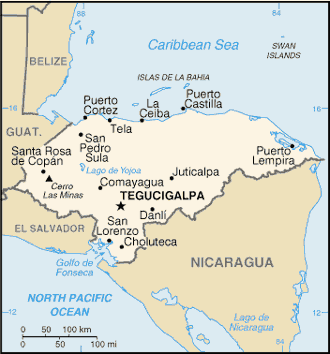The Honduras central government has declared a national emergency in light of a dramatic increase in Zika virus cases reported, according to a La Tribuna report (computer translated).

In a span of less than one week, the number of Zika virus infections have surged by more 50 percent– rising from 1,700 to 3,037 cases.
This comes one day after the World Health Organization (WHO) declared a public health emergency of international concern over the increasing numbers of microcephaly in babies and Guillain-Barré syndrome in various sectors of the population.
To date, the following 26 countries and territories in the Americas have reported autochthonous Zika transmission–Barbados, Bolivia, Brazil, Colombia, Costa Rica, Curaçao, Dominican Republic, Ecuador, El Salvador, French Guiana, Guadeloupe, Guatemala, Guyana, Haiti, Honduras, Jamaica, Martinique, Mexico, Nicaragua, Panama, Paraguay, Puerto Rico, Saint Martin, Suriname, US Virgin Islands and Venezuela.
According to WHO, Zika virus infection is caused by the bite of an infected Aedes mosquito, usually causing mild fever, rash, conjunctivitis, and muscle pain.
The virus was isolated for the first time in 1947 in the Zika forest in Uganda. Since then, it has remained mainly in Africa, with small and sporadic outbreaks in Asia. In 2007, a major epidemic was reported on the island of Yap (Micronesia), where nearly 75% of the population was infected.
On 3 March 2014, Chile notified PAHO/WHO that it had confirmed a case of indigenous transmission of Zika virus on Easter Island, where the virus continued to be detected until June 2014.
In May 2015, the public health authorities of Brazil confirmed the transmission of Zika virus in the northeast of the country.
Related:
- Costa Rica added to list of countries with Zika local transmission
- Nicaragua and Curacao confirm local transmission of Zika
- Dallas County confirms sexually transmitted Zika virus


One thought on “Honduras: Zika cases increase, National emergency declared”